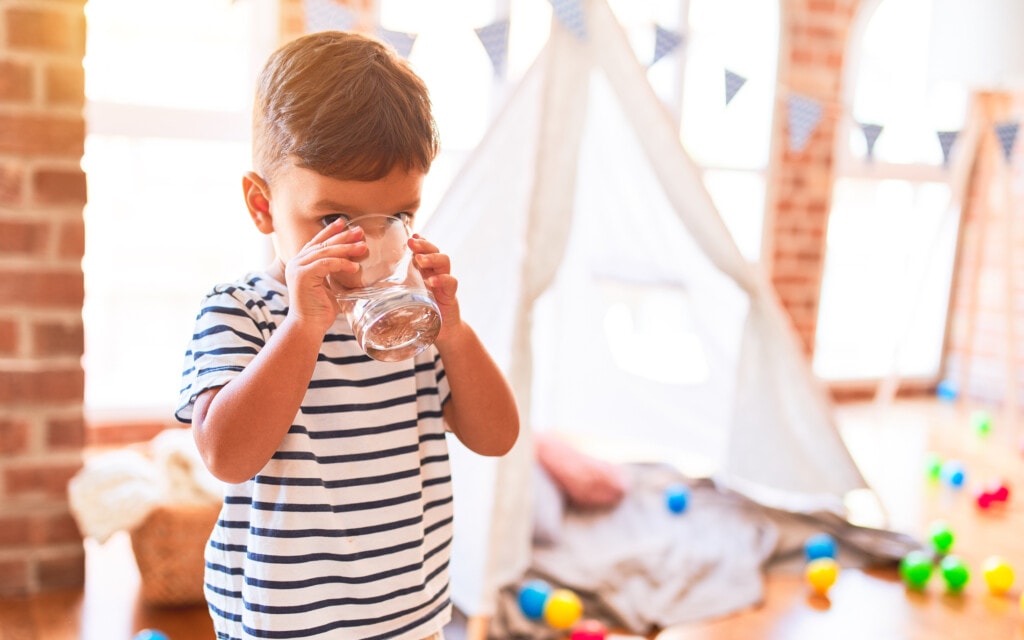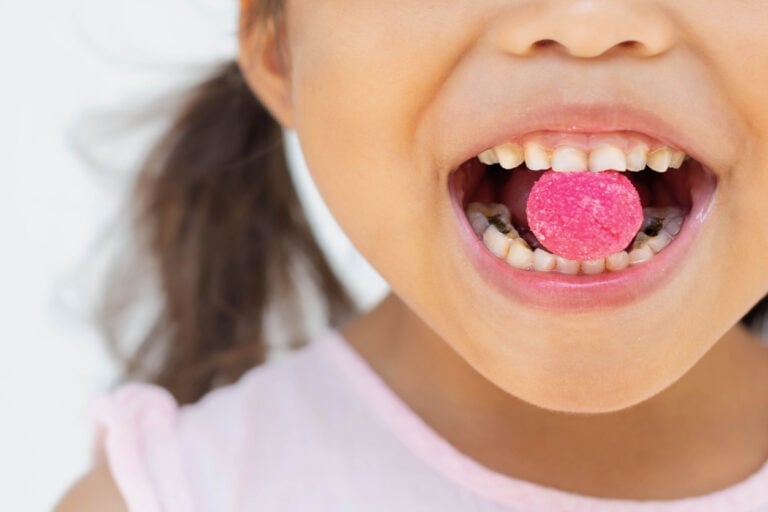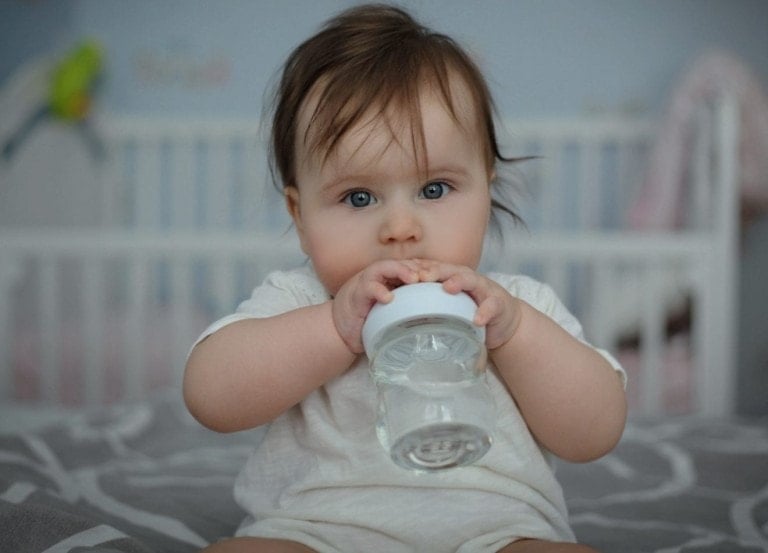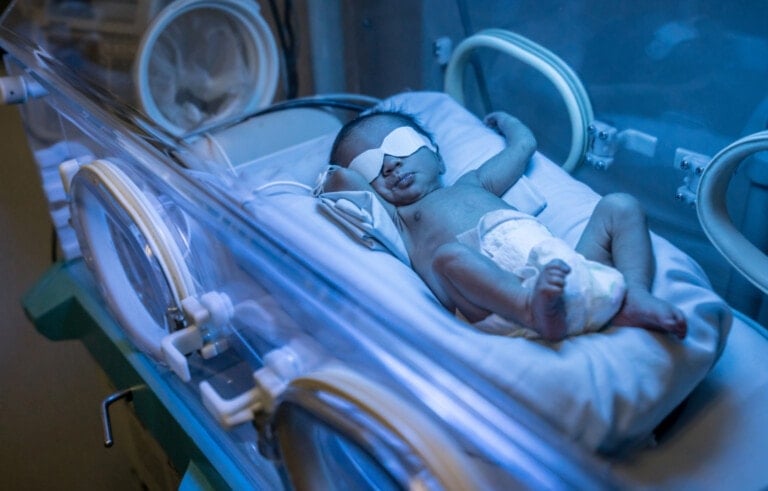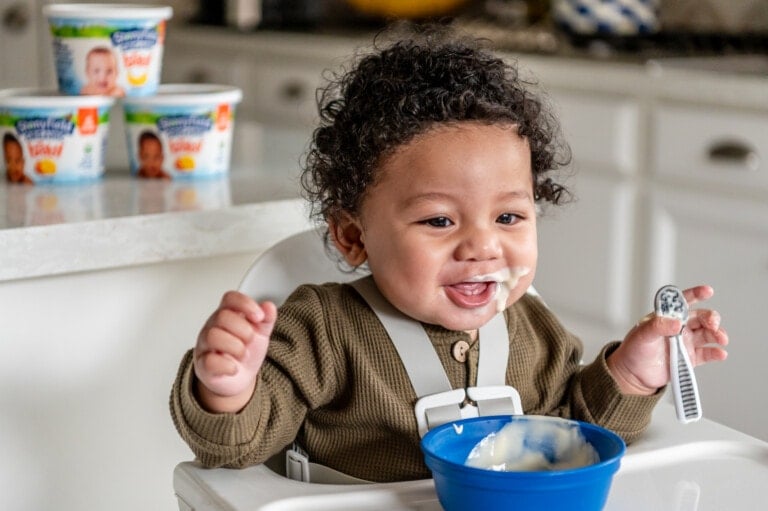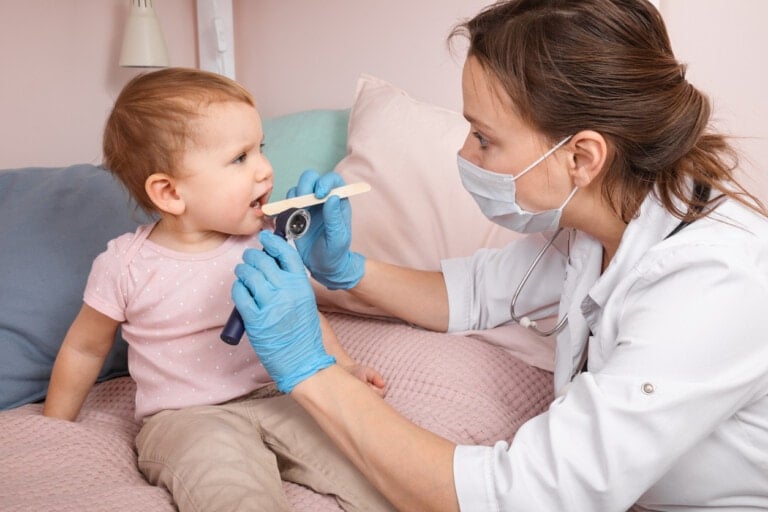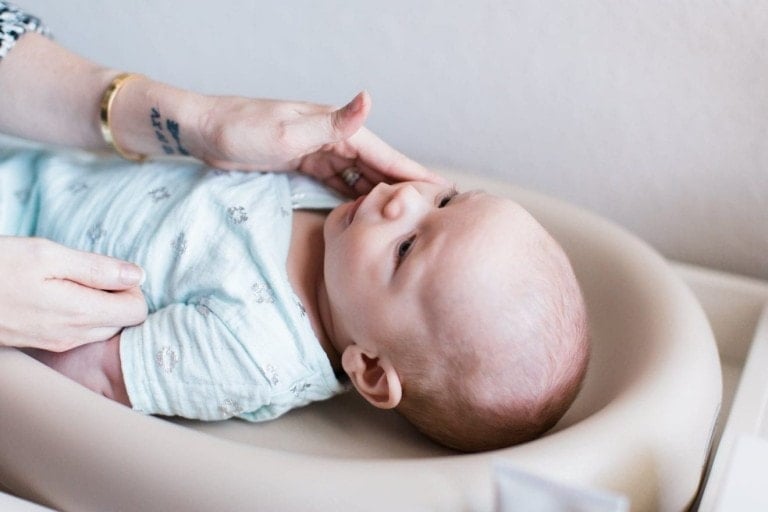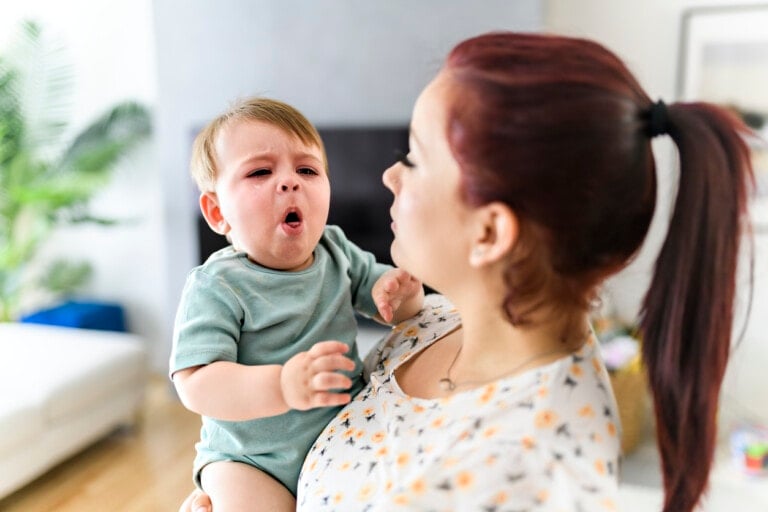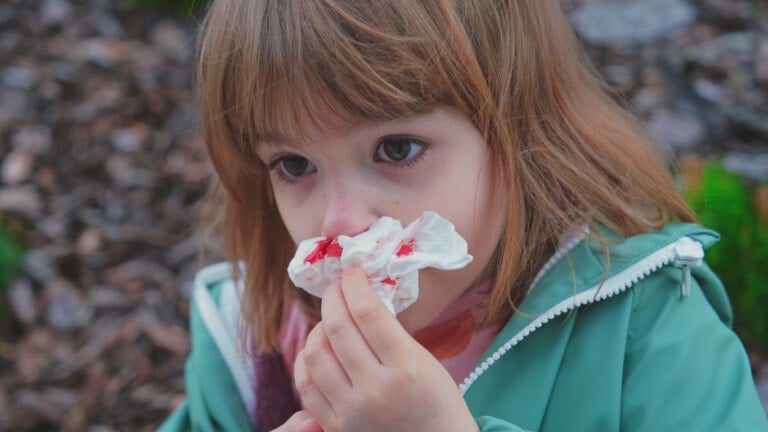Parents often worry that their child is dehydrated. But if your child is screaming and running away while you’re trying to change the diaper and call the doctor, you probably don’t have to worry about dehydration quite yet! Your child’s urine output and activity level are two of the best indicators of hydration status.
Dehydration in Children
In medicine, we determine whether a child is dehydrated by their “ins and outs.” Ins and outs (also referred to as “Input and Output” or “I’s and O’s”) are a measurement of the fluids that go in the body and the fluids that come out of the body. In otherwise healthy children, fluids going in are primarily from food and drinks. Fluids coming out of the body are usually in the form of pee, poop, and sweat.
We generally want the ins and outs to be equal for the body to have the appropriate fluid balance. Dehydration occurs when the output exceeds the input. So, in other words, more water is leaving the body than getting into the body.
Causes of Dehydration in Children
The most common causes of dehydration in children are when fluids are lost through one or more of the body systems:
- Gastrointestinal tract – This is diarrhea and/or vomiting.
- Skin – This can be fluid loss from fever, burns, excessive sweating, or bleeding.
- Urine – Medical problems like diabetes or some medications can cause a child to urinate more than usual.
Children are more at risk of getting dehydrated than adults for a few reasons:
- Vomiting and diarrhea are often symptoms of viral illnesses; children get more viral illnesses than adults. This is because they’re exposed to everything for the first time and often share things with other children they have put in their mouths.1,2
- Children lose more water through their skin than adults because they have a higher body surface area (skin) to body mass index (BMI) ratio and a higher base metabolic rate.3
- Children’s bodies are made up of more water than adults’ bodies are. Children’s bodies are around 65-70% water, while adults are closer to 60%.4
- Babies and young kids might be unable to express their thirst to the adults caring for them.
So, we know that children are at a higher risk of getting dehydrated than adults. But not all dehydration is the same. Dehydration can be classified as mild, moderate, or severe, depending on how much net water loss there is.
Symptoms of Dehydration in Kids
Children with mild dehydration can have no or very subtle symptoms. Here are some things to watch for:5
- Frequency and color of urination. If your child is peeing less than usual or the urine is a little darker than normal, these can be signs of mild dehydration. Urine should be a pale yellow color.
- Slightly dry mouth.
- Increased thirst.
As dehydration progresses from mild to moderate and severe, you can start to see the following signs and symptoms:5
- A very dry mouth or cracked lips.
- No tears when the child cries.
- The child is listless or very irritable.
- Verbal children can complain of being dizzy or light-headed or having a fast heartbeat.
More severe signs of dehydration include:5
- Lethargy – not just a tired child or one with less energy than usual. True lethargy is when a child won’t respond to your voice or touch, cannot get up or move around, or can only grunt and moan.
- Severe dehydration can make people stop breathing normally or even pass out.
A “sunken fontanel” in babies is a common concern for new parents. And, understandably, new parents look for this because newborns can’t tell us how they’re feeling or what’s going on. When babies are dehydrated, the fontanel on the top of their head can look or feel caved in. But this is a later sign of dehydration seen in babies who are not eating, urinating, acting normally, or are vomiting and/or diarrhea. This is not an isolated finding and is usually not one of the first things you’ll notice. So yes, always check with the doctor if you’re concerned, but try not to freak out if this is the only abnormality you see in your baby, who is otherwise doing fine.
When to Call Your Doctor
If you’re ever concerned your child is dehydrated, it’s best to call the doctor and have your child seen. They can look for things to determine if your child is dehydrated and, if yes, how severe. You should also call if your child:5
- Is a newborn baby from birth to 3 months old, and you have any concerns about their change in eating, urination, vomiting, diarrhea, fever, or activity level.
- Can’t keep any fluids down for several hours.
- There’s blood in the vomit or diarrhea.
- Has diarrhea that lasts more than a few days.
- Has vomiting that lasts more than one day.
- Has a fever or severe pain associated with vomiting and/or diarrhea.
- Hasn’t urinated in 6 to 8 hours for older children or 4 to 6 hours for younger children.
If the doctor asks you to bring the child in to be seen, they will check vital signs like blood pressure, heart rate, respiratory rate, and oxygen level. They’ll examine the child from head to toe, including checking pulse, skin, and mucous membranes. And they may do a urine and/or a blood test.
Treatment for Dehydration
Treatment depends on the severity of dehydration and the age of your child. It is not simply treated by giving more water. It needs to be the right combination of water and other electrolytes that exist in your body, such as salt. So, it’s best to check with your child’s doctor and follow the instructions specific to your child.
Mild dehydration can sometimes be treated with breastmilk, formula, or special oral rehydration solutions. More severe dehydration may require intravenous (IV) fluids in the hospital setting.
We are fortunate that dehydration is usually identified early and easily treated in resource-rich countries. If you are ever concerned your child is becoming dehydrated, you should check with your child’s doctor to catch it early and intervene appropriately.













